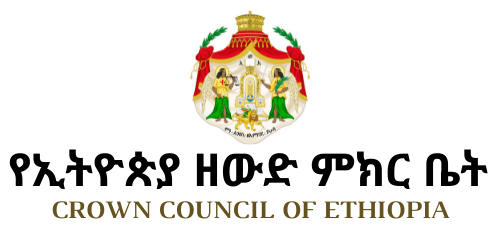Over the past twenty-five years, Ethiopia has struggled with one painful challenge after another. The worst kinds of government oppression worked in concert with years of devastating famine to leave lasting scars throughout our culture and our country. Now, the ravages of HIV and AIDS present us with one of the greatest threats to our people yet.
Thankfully, many AIDS patients in developed countries, such as the United States, are able to reap the benefits of powerful new drug combinations which ease their suffering and give them new hope for a longer life. Because of the blessing of these new treatments, too many men and women around the world are becoming complacent and forgetful of the horrors which HIV and AIDS can still bring to countries like Ethiopia, where the weapons necessary to win this war remain unavailable. If we do not alert our countrymen and warn the world community, the first decade of the new millenium will do unspeakable damage to our hopes for a peaceful and prosperous future.
The latest statistics detailing the HIV/AIDS situation in Ethiopia paint an ugly picture. Health officials estimate that nearly 2.5-million Ethiopians suffer from HIV infection. This is an amazing figure: it represents nearly 10 percent of the total infections throughout the world. More importantly, it means that one out of every ten adult Ethiopians carries this deadly virus and can pass it on to others.
These numbers make a grim formula for Ethiopia’s future. The average life expectancy is already relatively low in Ethiopia. If HIV and AIDS continue unchecked, by the year 2010, the average Ethiopian will die fifteen years younger. It is estimated that the ravages of this disease have already left over 620,000 children orphaned throughout Ethiopia. In ten years, the total will be nearly three times that number.
HIV and AIDS are also intimately linked to two other grave threats to our future, poverty and famine. As Ethiopia continues to struggle to feed itself, AIDS patients are at a greater risk. Carriers of the disease can be too weak to resist infections. The poorest of our countrymen are the least likely to receive expensive and time-consuming treatments. Unable to break from this cycle, Ethiopians sink deeper into poverty as they lose a productive and beloved member of their family.
To truly understand the scope of the potential social and economic devastation, we must do more than discuss the statistics. We must remember the human face of this horrible disease, the face of Ethiopians of all ages, from every socio-economic background. We must remember that this disease does not discriminate, that it kills Tigrean, Amhara, and Oromo alike.
Thankfully, some Ethiopians at home and abroad have already taken the first steps towards turning the tide in this crucial battle. The Ethiopian Orthodox Church has worked in collaboration with UNICEF, encouraging young Ethiopians to change their daily behavior and lifestyle to prevent the spread of HIV/AIDS. The science faculty at Addis Ababa University is working with health institutions around the world in preparation for an international conference on HIV/AIDS, currently scheduled for November. Finally, the sick themselves have started to come together. Over one hundred Ethiopians living with HIV/AIDS have formed a support organization called “Dawn of Hope”, whose members are actively working for an end to this terrible disease.
For the Ethiopian nation to live to see the full promise of this dawn of hope, the Ethiopian Crown Council and Ethiopians everywhere must work together to summon our full potential as a people. What can those of us in the diaspora do to ease the situation back home? All of our voices in unison can raise awareness throughout the world that for countries such as Ethiopia, the AIDS crisis has only just begun. Together, we can work for the medical and financial assistance that will ease Ethiopia’s plight.
But most importantly, we must spread the news throughout all Ethiopia that the answers to our problems are within our own reach. We must support Ethiopian organizations at home and abroad that continue to educate our people about the causes of this health crisis, and that continue to provide health care and training to those in need. Where those organizations fall short or do not exist at all, we must begin to build them ourselves, with our own hands, and with our own hearts.








